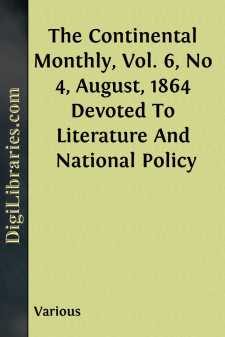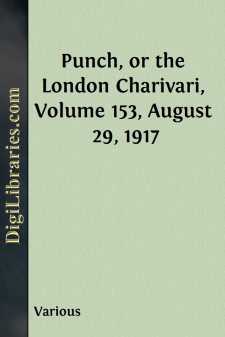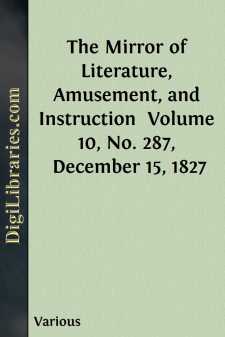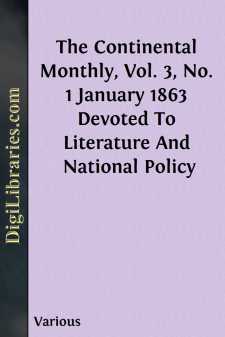Categories
- Antiques & Collectibles 13
- Architecture 36
- Art 48
- Bibles 22
- Biography & Autobiography 813
- Body, Mind & Spirit 142
- Business & Economics 28
- Children's Books 17
- Children's Fiction 14
- Computers 4
- Cooking 94
- Crafts & Hobbies 4
- Drama 346
- Education 46
- Family & Relationships 57
- Fiction 11829
- Games 19
- Gardening 17
- Health & Fitness 34
- History 1377
- House & Home 1
- Humor 147
- Juvenile Fiction 1873
- Juvenile Nonfiction 202
- Language Arts & Disciplines 88
- Law 16
- Literary Collections 686
- Literary Criticism 179
- Mathematics 13
- Medical 41
- Music 40
- Nature 179
- Non-Classifiable 1768
- Performing Arts 7
- Periodicals 1453
- Philosophy 64
- Photography 2
- Poetry 896
- Political Science 203
- Psychology 42
- Reference 154
- Religion 513
- Science 126
- Self-Help 84
- Social Science 81
- Sports & Recreation 34
- Study Aids 3
- Technology & Engineering 59
- Transportation 23
- Travel 463
- True Crime 29
Sort by:
by:
Various
SOME USES OF A CIVIL WAR. War is a great evil. We may confess that, at the start. The Peace Society has the argument its own way. The bloody field, the mangled dying, hoof-trampled into the reeking sod, the groans, and cries, and curses, the wrath, and hate, and madness, the horror and the hell of a great battle, are things no rhetoric can ever make lovely. The poet may weave his wreath of victory for...
more...
by:
Various
A HEAD CASE. We were discussing that much discussed question, whether it is better to be wounded in the leg or in the arm, when young Spilbury butted in. "I don't know about legs and arms," he said, "but I know there are certain advantages in having your head bound up." Spilbury's own head was bound up, and we all said at once that of course the head was much the worst place...
more...
by:
Various
NOTES. THE MEANING OF "DRINK UP EISELL" IN HAMLET. Few passages have been more discussed than this wild challenge of Hamlet to Laertes at the grave of Ophelia: "Ham. I lov'd Ophelia! forty thousand brothers Could not, with all their quantity of love, Make up my sum. What wilt thou do for her? —Zounds! show me what thou'lt do? Woo't weep? Woo't fight? Woo't fast?...
more...
by:
Various
HISTORICAL FACTS RELATIVE TO THE EARLY CONDITION OF THE ENGLISH.(For the Mirror.)London, in early times (King Ethelred's reign) consisted only of scattered buildings from Ludgate to Westminster, and none where the heart of the city now is; it was afterwards extended more westward and continued increasing—-eastward being neglected until a more later period. Who can view its present well...
more...
by:
Various
MODERN TYPES. (By Mr. Punch's own Type Writer.) No. XVI.—THE HURLINGHAM GIRL. It is not so easy as it might appear to define the Hurlingham Girl with complete accuracy. To say of her that she is one whose spirits are higher than her aspirations, would be true but inadequate. For, at the best, aspirations are etherial things, and those of the Hurlingham Girl, if they ever existed, have been so...
more...
by:
Various
THE HUGUENOTS OF NEW ROCHELLE. It is worthy of record that Westchester County, New York, was settled by emigrants from New England and France, and both seeking homes from religious persecutions. As early as 1642, John Throcmorton, with thirty-five associates, made the first settlement in this section, with the approbation of the Dutch authorities. With Roger Williams, driven away from New England by...
more...
by:
Various
THE MYSTERY OF MR. E. DROOD. AN ADAPTATION. BY ORPHEUS C. KERR. CHAPTER XIIвÐâ(Continued.) The pauper burial-ground toward which they now progress in a rather high-stepping manner, orвÐâto vary the phraseвÐâtoward which their steps are now very much bent, is not a favorite resort of the more cheerful village people after nightfall. Ask any resident of Bumsteadville if...
more...
by:
Various
NATURAL TUNNEL, IN VIRGINIA. Rock Bridges occupy the same pre-eminence amongst the sublimities of nature, that artificial bridges maintain amidst the labours of man. Both alike inspire us with admiration, though we are enabled to obtain but unequal results as to their respective origins. The bridge, built by human hands, is, indeed, a triumph of the perfection of skilful contrivance; the strength and...
more...
by:
Various
OUR LADY'S CHAPEL, ST. SAVIOUR, SOUTHWARK. The Engraving represents the interior of the Virgin Mary's Chapel, commonly called the Lady Chapel, and appended to the ancient collegiate church of St. Saviour, Southwark. The exterior view of the Chapel will be found in No. 456 of The Mirror. About eighteen months since part of the western side of the High-street was removed for the approach to the...
more...











